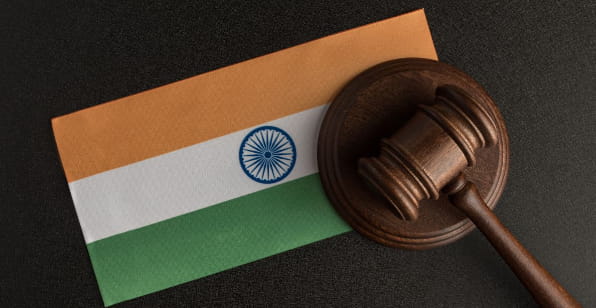Legal gambling in India is allowed only in a few states and for limited kinds of games. Places like Goa, Sikkim, and Daman have licensed casinos, while Kerala, Maharashtra, and Punjab run state lotteries. In contrast, states such as Telangana and Tamil Nadu have banned most forms of gambling.
The rules mostly depend on how a game is seen, if it’s based on skill or just luck. Betting at physical locations and online is treated differently, and every state sets its own laws.
To know what’s allowed and what’s not, it helps to understand how gambling laws in India work and how they differ from one state to another.
How Does Legal Gambling Work In India?
The legality of gambling in India depends primarily on two key factors: the type of game being played and the state in which it takes place. Since gambling laws are not uniform across the country, each state has the authority to regulate or prohibit different forms of gambling based on its own policies.
1. The Type of Game: Games of skill, such as rummy or fantasy sports, are generally legal, while games of chance, like roulette or slots, are often banned or restricted.
2. The State: Each Indian state decides its own gambling laws. For example, casinos are legal in Goa and Sikkim, but banned in Telangana and Tamil Nadu.
India doesn’t have one single law that applies across the whole country. Each state has the right to decide what kind of gambling is allowed within its borders.

One key legal distinction in India is between games of skill and games of chance. Skill-based games like rummy and fantasy sports are generally permitted, as they require judgment and expertise. In contrast, chance-based games are often restricted unless permitted by specific state laws through licensed casinos or government-run lotteries.
On the other hand, games that depend primarily on luck, like roulette or slot machines, are usually not allowed unless a state has special rules for them.
Some well-known examples of legal gambling include horse racing, which is allowed in many states, and state-run lotteries. Casinos are also legal, but only in a few places, such as Goa, Sikkim, and Daman. Even in these locations, strict rules apply.
Disclaimer: This content is based on earlier regulations. Under the new bill, all money-based online gambling and betting platforms are banned across India.
Is Gambling Legal In India In 2026
Online gambling is not specifically addressed by any central law in India. The primary legislation, enacted in 1867, predates the Internet by over a century. As a result, there is no uniform legal framework for digital betting, and regulation is largely left to individual states.
Because of this, online gambling in India often falls into a legal grey area.
Some states have made their own laws to stop online betting. For example, Telangana and Tamil Nadu have banned most types of online gambling. In these states, even skill-based online games may not be allowed.

At the same time, many online platforms keep operating across India. Some focus on games like fantasy cricket or rummy, which are often treated as games of skill. These are generally allowed in most parts of the country.
There are also offshore websites that accept Indian users. These platforms are more complex to control under Indian laws, which makes their legality unclear. Still, many people use them without facing legal trouble.
Is Online Gambling Legal In India In 2026?
Online gambling is not banned by any central law in India. As mentioned earlier, gambling law was established long before online gaming existed, so most regulations don’t directly address websites or apps.
However, some Indian states like Telangana and Tamil Nadu have passed their own laws to stop online betting, even if the game is skill-based. These state-level bans override the general acceptance of skill-based games, making even popular apps like rummy or fantasy sports illegal within their borders.
At the same time, many platforms continue to operate across India, including fantasy sports and rummy apps, which are mostly seen as legal due to their skill-based nature.

Players are often required to complete account verification steps, including processes like KYC in online casinos before they can deposit or withdraw money.
Many Indian users also use offshore betting websites. Their legality remains unclear under Indian laws, but enforcement against players is still rare in most regions.
Indian Laws Which Govern Gambling Activities
Most gambling rules come from older central laws, while individual states make their own updates based on local needs.
1. The Public Gambling Act, 1867
This is the primary central law governing gambling in India. It bans running or visiting public gambling houses, meaning any place used for common gaming for money. Even though it is a central law, states can choose to follow it, change it, or make their own rules based on it.
The law mainly targets physical locations and does not include anything about the internet or digital platforms.
Many states still follow this old law as a base, while others have made their own updated versions. The law is now over 150 years old and is seen as outdated for modern gambling formats, especially online.
Some people also look for ways to avoid being tracked online, often asking whether they can play online casinos anonymously, which adds another layer to the legal confusion.
2. Games of Skill vs. Games of Chance
The Supreme Court of India has made a clear distinction between games of skill and games of chance. Games that mainly depend on a player’s ability or knowledge are treated differently from those that rely mostly on luck.
Rummy, poker, and fantasy sports are generally seen as skill-based and are legal in most states. These games involve strategy, decision-making, and understanding of rules or gameplay. Courts have also recognized skill as a key factor in distinguishing them from illegal gambling activities.
On the other hand, games like roulette or slot machines depend on pure chance and are mostly banned outside licensed casinos.
3. Online Gambling in India (IT Act + State Laws)
The Information Technology Act does not clearly talk about gambling. It focuses on digital security, not gaming content. So, it does not directly stop or allow online gambling.
Some states have passed their own rules to ban online betting. Right now, there is no single national rule for online gambling, but this may change as new regulations are being discussed.
Different Types Of Legal Gambling Play In India
India allows certain types of gambling, depending on the state and the nature of the game. What is legal in one region may be completely banned in another. The rules also vary based on whether the activity is skill-based or luck-driven.
Here are the most common legal formats:
- Horse Racing: Betting on horse races is allowed in most Indian states. It is considered a game of skill and is regulated by racing boards and turf authorities.
- State Lotteries: Lotteries are legal in states like Kerala, Maharashtra, Punjab, and Sikkim. These are run by the state governments and follow strict rules.
- Fantasy Sports: Platforms that offer fantasy cricket, football, and other sports are treated as skill-based and are allowed in most regions. Courts have supported their legal status when real skill is involved.
- Rummy and Poker: These games are allowed if played as games of skill. While playing cards is illegal in India, rummy and poker are generally legal when no chance or betting house is involved.
- Casinos: Legal casinos are found only in Goa, Sikkim, and Daman. Players visiting these venues must follow age and ID rules, and winnings are paid out directly at the venue under-regulated procedures.
Is Gambling Taxable In India (Online And Offline)?
Gambling winnings in India are treated as income and are taxed under the Income Tax Act.
If someone wins more than ₹10,000 from gambling activities like casinos, lotteries, or game shows, a 30% tax is cut directly from the prize.
This tax rule also applies to online platforms, and online casino winnings are taxable in India. Users must include such income when filing their tax returns.

In addition to income tax, a 28% GST is added to casino services. Fantasy sports and other online games may have different GST rates, depending on how the service is classified by law.
For offshore betting platforms used by Indian players, an Equalisation Levy may apply. This is aimed at foreign websites that earn money from Indian users without being based in the country.
What Are Punishment For Illegal Gambling In India?
Punishments for illegal gambling in India depend on whether the activity is done in public, online, or as part of a larger operation.
Under the Public Gambling Act, anyone found in a typical gambling house may face a fine of ₹200 or up to 3 months in jail.
Some states have stricter laws. For example, Maharashtra, Telangana, and Andhra Pradesh have special acts with higher fines and longer jail terms. These apply not only to players but also to those who run illegal gambling setups.
Online gambling can also lead to legal trouble in states where it is banned. In such places, even skill-based games may be restricted, and users can be punished if caught using or promoting such platforms.
Can Tourists Gamble Legally in India?
Tourists visiting India can take part in gambling, but only in states where it is legally allowed. Licensed casinos in Goa and Sikkim are open to foreigners who follow the local rules.
To enter a legal casino, tourists must be at least 21 years old and carry valid government-issued identification. Passports are usually accepted at the entry points.

Online gambling platforms are also accessible from most parts of India. However, the legal status of these platforms remains unclear, and not all states allow online betting.
There are no special permits or separate rules for tourists. They must follow the same gambling laws as Indian citizens, based on the state they are in.
Conclusion: Gambling In India Is Legal Only In Select States With Regulations
The legalization of gambling in India is complex and varies depending on the type of game and the state in which it is played. While some forms of gambling are legal, others may be banned or have restrictions.
Many people utilize these platforms, but the laws governing them are often unclear and inconsistent across different states, causing confusion.
Therefore, both tourists and locals should always check the local laws before participating in any gambling activities.
Discussions about national reforms are currently underway, and it is possible that clearer regulations may be implemented in the coming years.
FAQs
Online gambling is not banned by central law, but some states like Telangana and Tamil Nadu have banned it within their borders.
Casinos are legally allowed only in Goa, Sikkim, and Daman, and they operate under state-issued licenses.
Fantasy sports are generally considered games of skill and are allowed in most Indian states, though a few have restrictions.
Yes, if caught gambling in a state where it is banned, you may face a fine or jail time, depending on the local law.
A flat 30% tax is deducted on winnings over ₹10,000. Additional taxes like GST may also apply, depending on the platform.
No license is needed, but tourists can only gamble where it is legal and must meet age and ID requirements.

